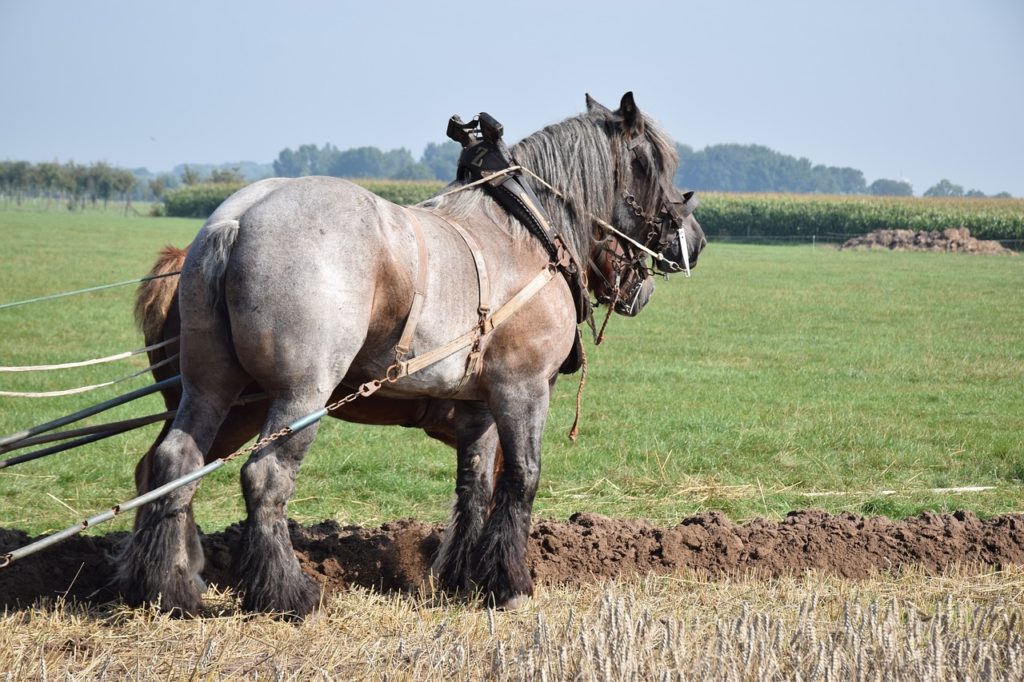by Laura K. Secor

Hello Dear Friends, it’s time to resume our discussion of how Stoic philosophy is going to get us through the holidays. Bur first, let me tell you a story.
Once upon a time there was a Chinese farmer whose horse ran away. That evening, all of his neighbors came around to commiserate. They said, “We are so sorry to hear your horse has run away. This is most unfortunate.” The farmer said, “Maybe.”
The next day the horse came back bringing seven wild horses with it, and in the evening everybody came back and said, “Oh, isn’t that lucky. What a great turn of events. You now have eight horses!” The farmer again said, “Maybe.”
The following day his son tried to break one of the horses, and while riding it, he was thrown and broke his leg. The neighbors then said, “Oh dear, that’s too bad,” and the farmer responded, “Maybe.”
The next day the conscription officers came around to conscript people into the army, and they rejected his son because he had a broken leg. Again all the neighbors came around and said, “Isn’t that great!” Again, he said, “Maybe.”
Just like what Lao Tzu said:
Happiness is rooted in misery.
Misery lurks beneath happiness.
Who knows what the future holds?
There is no honesty.
Honesty becomes dishonest.
Goodness becomes witchcraft.
Man’s bewitchment lasts for a long time.
Lao Tzu 58
Just as a reminder, Lao Tzu was a spiritual thinker in 5th century BCE China who founded the philosophical religion of Taoism. We’ve mentioned the Tao before and we will again. In fact, maybe we will do a brief refresher in January. But meanwhile…
Sixties philosopher and spiritual entertainer Alan Watts used the above parable, The Story of the Chinese Farmer, to illustrate the way of life where nothing is experienced as either an advantage or a disadvantage. He argues that it is the source of enormous empowerment and liberation.
The farmer does not see life in terms of gain or loss or advantage or disadvantage, because we never really know whether an event is fortune or misfortune. Only change is constant. Imagine how powerful an idea this could be, if only we could feel it in our bones!
Thus primed with a taste of one ancient philosophical religion, we now turn to another. This will be our second installment of the Daily Stoic, a book of compilations and reflections by Ryan Halliday.
The entry for November 14th is titled “You Choose the Outcome”. It starts with a quote from Epictetus’ Discourses: “He was sent to prison. But the observation ‘he has suffered evil’ is an addition coming from you.” Then Ryan comments:
This is classic Stoic thinking. An event itself is objective. How we describe it – that it was unfair, or it’s a great calamity, or that they did it on purpose – is on us.
Malcolm X (then Malcolm Little) went to prison a criminal, but he left as an educated, religious, and motivated man who would help in the struggle for civil rights. Did he suffer an evil? Or did he choose to make his experience a positive one?
Acceptance isn’t passive. It’s the first step in an active process toward self-improvement.
Can you relate to Ryan’s assertion (almost a challenge) to resist the reflexive judgement that rushes to apply the “good” and “bad” labels to every event? How could we even begin to go about resisting that judgmental urge? Sometimes I finding myself saying – I love the Stoic conclusions, but I don’t really see a path towards those conclusions. How do I get there from here?
I find that guidance for thinking like a Stoic can come from the Taoist philosophical religion. Here is a modern day Taoist, providing his insight into why we might pursue the Way. “Tao fundamentally assumes that an inner cultivation of character can lead to an outer resonance. This is an important distinction. When confronted with the mysteries of the universe and the adversities of life, those who follow Tao think first to secure their own inner characters.” This speaker is Deng Ming-Dao, from his lovely little book 365 Tao.
These two ancient philosophical religions have so much in common, don’t they? I really find it interesting the way one can illuminate the other. Here we go into the holidays, which can mean intense family dynamics or the absence of family, which is it’s own dynamic. Either way, it’s a very emotional time. But before we rush to label these holiday events as “good” or “bad,” I encourage you to take a minute to center yourself, to engage in the inner cultivation of character, so as to engage these days with open curiosity rather than judgment.
Happy Thanksgiving!
